Choosing a flatbed scanner
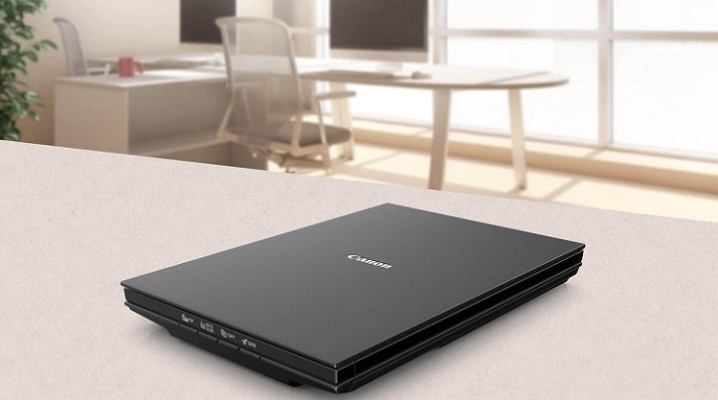
Multifunctional equipment is an integral part of the life of almost everyone living today. Large offices make extensive use of computer technology and related systems. Take, for example, flatbed scanners: now not only offices, but also many active users cannot do without them. The article will focus on this type of equipment, its capabilities and features.
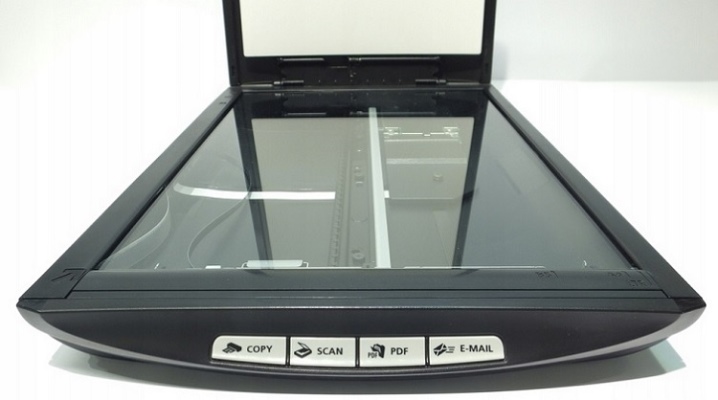
What it is?
Flatbed scanner is a multifunctional equipment with high productivity and convenient operation. The main feature of this technique is that during scanning there is no need to deform a document or any other printed matter.
This is a handy device for scanning books, slides, photographs, film and other materials.
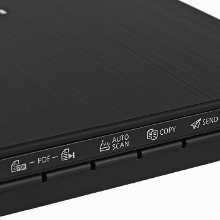

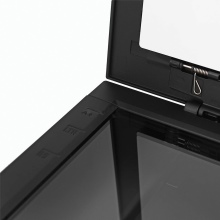
Principle of operation
To convert the material into electronic form, you need to place the sheet on a special glass surface, face down.
After starting the equipment into operation, the carriage placed under the glass begins to operate. This component is equipped with sensors, mirrors, lenses and other technical elements. When moving, the carriage projects light onto the printed matter. It is reflected and captured by sensitive sensors.
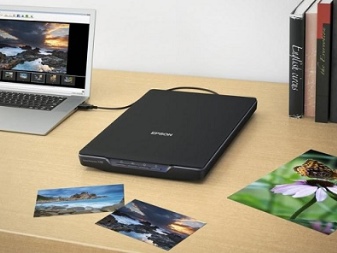
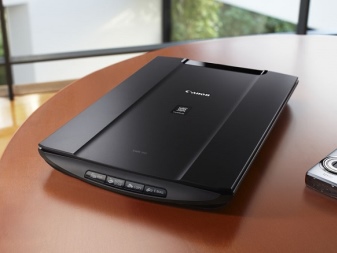
Sensors convert information into special electrical signals, depending on the level of illumination of each of the areas of the scanned document. Signals are picked up converter equipment and digitizes them. Received digital information enters the computer in the form of an electronic file.
As soon as the work of the scanner is completed, the technician notifies the user about this, and a new image appears on the screen. The equipment is controlled through special softwarewhich is installed on the PC before using the scanner. In addition, you can use the "hot" keys.
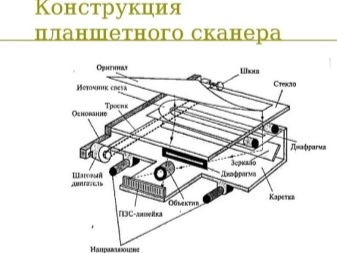
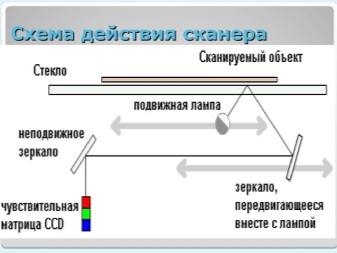
Advantages and disadvantages
This type of scanner has the following advantages:
- a large set of functions;
- ease of operation, understandable even for novice users;
- a wide range of models that differ in capabilities and price category;
- high quality of the resulting image;
- support for various formats.
Disadvantages:
- large sizes of some models of equipment;
- there are restrictions on scanning transparent materials.
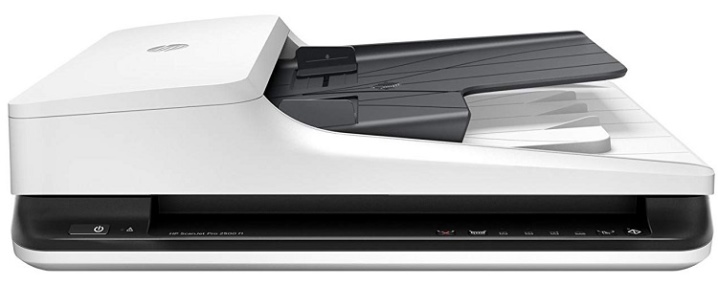
Varieties
Modern flatbed scanners are available in a variety of configurations, each designed to work with specific materials. There are several of the most commonly used types of tablet technology.
- Broaching scanner. This view is specially designed for scanning non-stitched documents and images. The rollers automatically feed the sheets of paper through the devices of the machine. During this, documents are processed by a light source and sensitive sensors.
- Film. This type of scanner is often used in professional copy centers and photo studios. The equipment is used for processing photographic films, as well as digitizing slides and other materials on transparent carriers.
- Network... The main characteristic of this equipment is the high speed of data transmission, which are sent to e-mail addresses. Some models are able to save data on external media and in network folders on your computer.
For those users who wish to purchase a flatbed scanner for personal use, it is recommended to pay attention to the popular wide-format models with an automatic paper feeder.
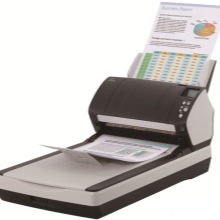
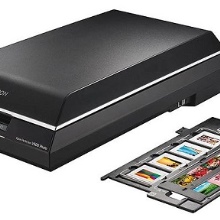
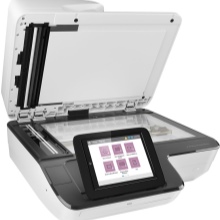
Canon's CanoScan LiDE 400
Convenient and practical technique, perfect for scanning thick printed matter. The technique can be fixed, if necessary, in an upright position. Pros:
- high speed of creating copies;
- a varied range of settings;
- improved color rendering (due to LiDE backlighting);
- excellent ratio of technical characteristics and cost;
- reliable and well-coordinated operation of devices;
- connection and power supply via LiDE port.
The downside is the following point: in order to take advantage of all the capabilities of the equipment, it is imperative to install the latest version of the driver.
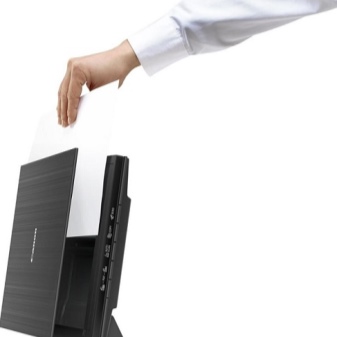
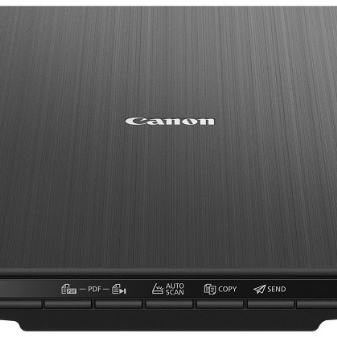
Perfection V370 Photo by Epson
Compact equipment with professional functionality. The set includes software for processing the scanned material. Let's name the advantages.
- Fast work.
- Practical and reliable assembly.
- Reasonable price considering the capabilities of the equipment.
- The scanner is suitable for both office and home use.
- A versatile model for working with photographs, printed documentation, film and other materials.
- Free and useful software included.
Flaw: a fairly easily soiled black case, on which the smallest particles of dust and other contaminants are visible.
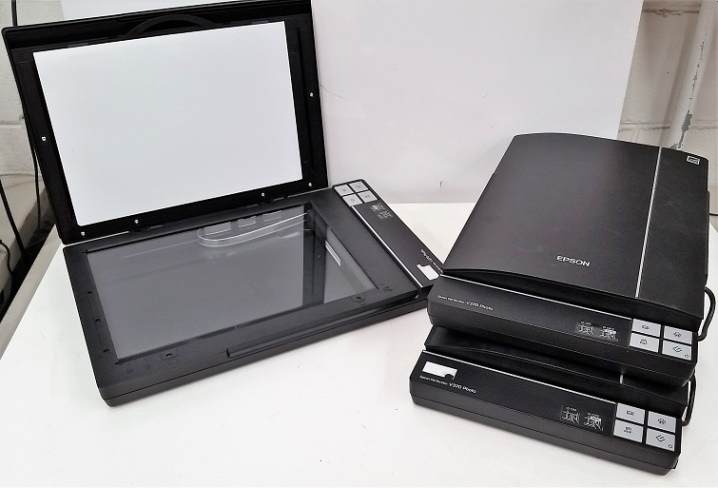
Modern version of Mustek A3 1200S
The equipment is designed to work with large formats (including A3). This scanner is also suitable for scanning drawings, graphs and other project documents.
Pros:
- equipment will delight you with good productivity and reliability (even with intensive use);
- fast scanning process;
- the size of documents is determined automatically;
- convenient layout for positioning sheets.
Minus: when scanning large formats at maximum resolution, the cycle increases significantly (up to 50 seconds).
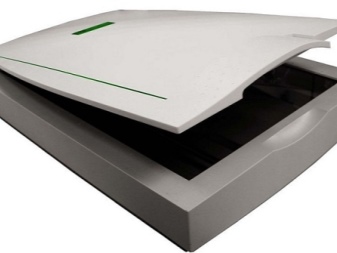
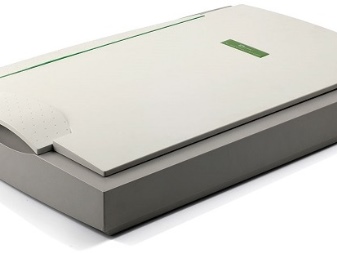
Manufacturers
Consider a list of manufacturers of flatbed scanners.
Canon
Canon products are in demand all over the world. This company has gained popularity thanks to its high-quality photographic equipment. In the manufacture of scanners, the specialists used the high-speed Multi-Photo technology. With its help, the technician automatically recognizes and aligns the image.
The user can lay several images on the glass at once, thereby significantly saving time spent on scanning.
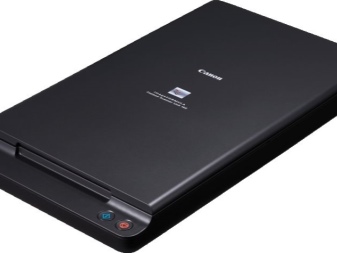
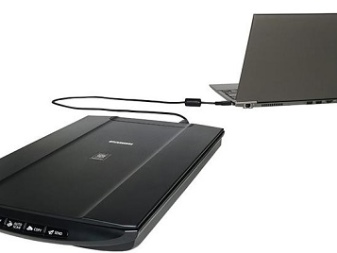
Epson
The equipment produced under this brand attracts the attention of buyers with its excellent quality and affordable price. The company's specialists have worked on the high accuracy of text transmission, as well as the contrast and saturation of the image. Were special technologies have been applied to maximize the quality of the translation of the original document into electronic format. Epson brand scanners demonstrate excellent results when processing photos, texts, drawings and other documents. The equipment is quite suitable for home use as well.
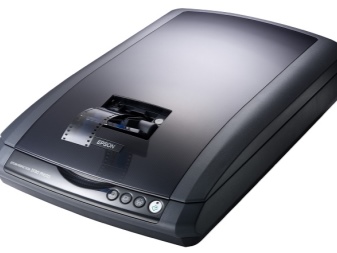
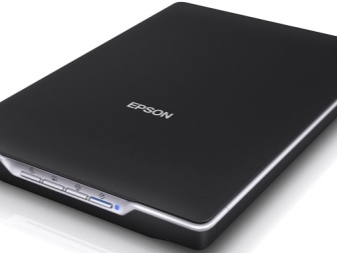
Hewlett Packard
Products from this manufacturer are actively used in large business centers and offices. Using professional equipment, you can scan a large amount of material in a short time.
Users who have been using equipment from this manufacturer for several years note the high build quality and reliability of the equipment.
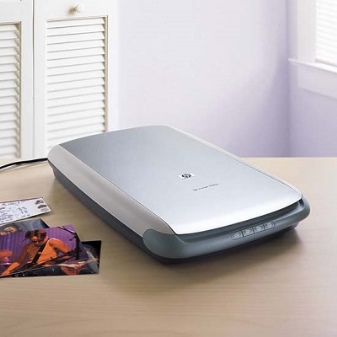
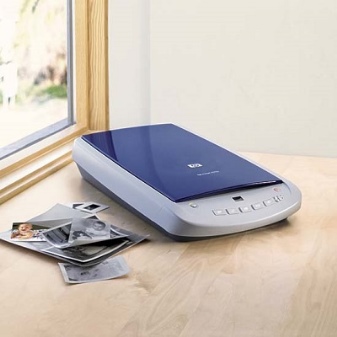
Criterias of choice
When choosing a scanner for your home or office, you need to pay attention to certain technical characteristics and capabilities of a particular model... And first of all, you need to decide for what purposes the technique will be used. Some options are designed specifically for photographs, while others are for text documents and graphics.If the equipment is chosen for an office where many people work, an important parameter will be scanning speed.
A fast scanner will do a large amount of work in the shortest possible time. For digitizing images, it is important that the scanner is in color. In some cases, you may need a two-sided device with a large set of functions and support for multiple resolutions (including A4 format). The main parameters include characteristics, which we will consider in more detail below.
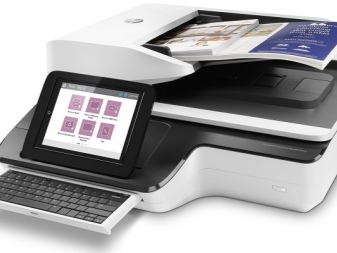
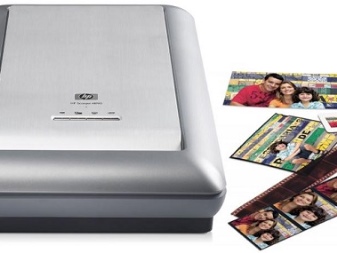
Color rendering
This parameter is also known as bit color depth. In the technical specification for the equipment, it is designated in bits. The higher the number, the better the scanned image will be. If the scanner is planned to be used for digitizing text documents or graphs, including color ones, 24-bit equipment will be sufficient.
For scanning photographs and other images, it is better to choose equipment with a value of 48 bits. The advanced color technology has 96-bit color depth, which is a characteristic of professional scanners.
The color depth will affect the number of shades transferred from the scanner to the computer.
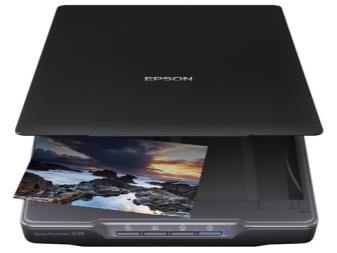
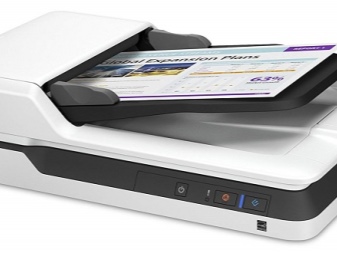
Dynamic range
If this parameter is not so important when choosing digital equipment for home use, then for professional models it is imperative to pay attention to it. Dynamic range significantly affects the gradation of the brightness of the picture, and is also responsible for the smooth transition between tones and shades. If your flatbed scanner has 24-bit color, then the dynamic range should be approximately 2.4 to 2.6 units. For 48-bit models and above, this figure should be at least 3.
If the contrast and saturation of the final image is of great importance to the user, then this characteristic is also necessary for selection. In the absence of this parameter in the description of the equipment, you should look for it in the operating instructions.
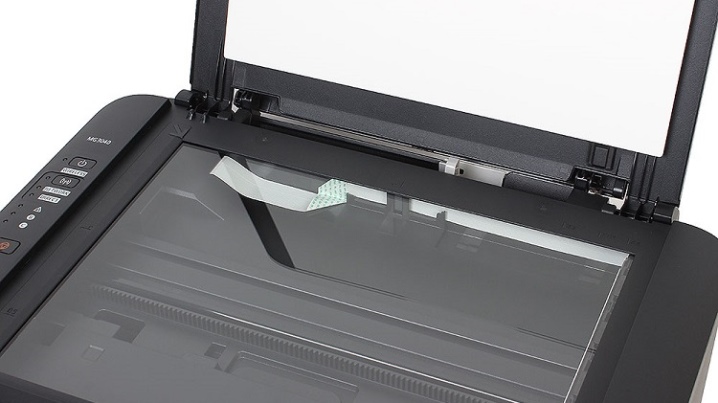
Format for documents
The next parameter that you must pay attention to when choosing a scanner is the size of the original document. Most of the current models designed for home and office use are designed for A4 sheets. To create posters, layouts and other printing products, scanners that support larger formats are used. Copy centers and printing studios cannot do without such equipment.
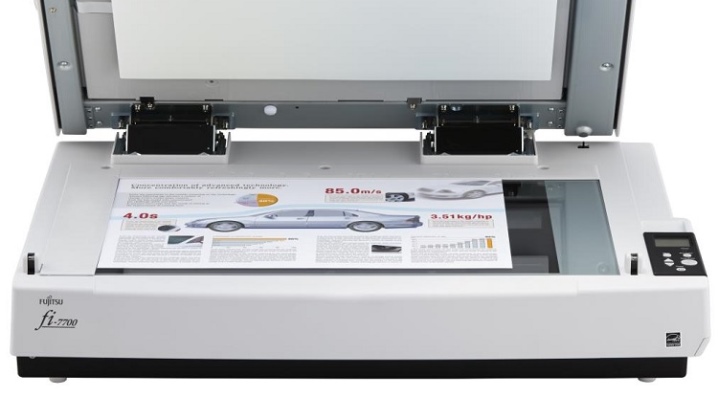
Connection options
Manufacturers of modern scanners have developed many options for connecting equipment to stationary computers and laptops. Typically, equipment can be synchronized through three types of ports:
- USB;
- SCSI;
- combined version (USB + SCSI).
The first connector is the most popular and widely used, so experts recommend opting for models that are coupled via the USB interface.
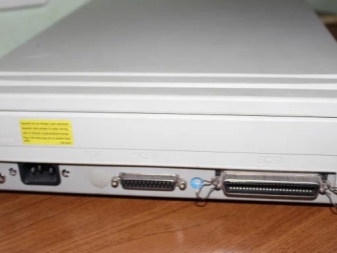
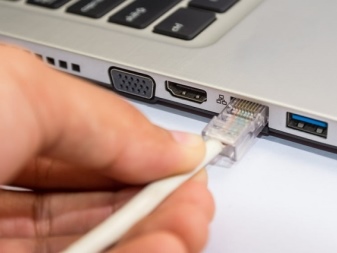
Other
- Permission. Another parameter to look out for when buying a scanner. Experts designate this characteristic using dots or pixels (dpi or ppi, respectively). The more their number, the better for the quality of the received electronic document. This parameter is important when scanning both texts and photographs. This characteristic is indicated by two digital indicators. One indicates the vertical resolution of the image, and the other indicates the horizontal. Some manufacturers indicate only the optical resolution (horizontal), which significantly depends on the matrix model.
- The standard setting for home use is 600x1200 dpi. If the resulting image is going to be edited, the minimum resolution should be 2000 dpi. High performance models are used by professional photographers for large format shots.It makes no sense to spend money on professional equipment for scanning texts, graphs and other materials.
- Supported OS... A flatbed scanner is a computer peripheral. For the technique to work, it must be compatible with the operating system installed on the PC. Most models work seamlessly with Windows, which is the most popular platform today. In addition, there are options in the digital marketplace that work with Mac OS or Linux systems. This parameter must be clarified before purchasing.

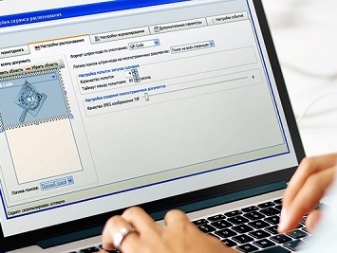
How to connect?
Using the scanner begins by synchronizing it with your computer. The connection process is very simple and usually does not cause difficulties even for a novice user. The cable from the scanner must be plug into the appropriate connector on your PC or laptop. Before actually connecting, be sure to install special softwarecalled a driver. A disk with the necessary software must be included with the equipment. If it is absent, you can download the driver on the manufacturer's website (the software is publicly available). Select the latest version of the program, download it and install it on your PC. The software is required for the computer to detect the new device.
The installation process takes place according to a certain algorithm.
- The included boot disk must be inserted into the drive and wait for it to load.
- If nothing happens, you need to start the disc yourself. To do this, open "My Computer", right-click on the drive icon and select "Startup". Alternatively, you can open the disc menu and run the setup. exe.
- After that, the program is installed, following the Russian-language menu.

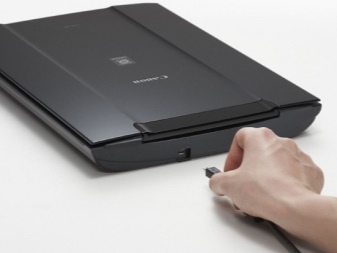
How to use?
After installing the software, you need to test the operation of the new hardware. To do this, you need to try to scan any document, be it text or an image. Equipment check is performed as follows.
- Carry out transport unlocking of the scanner carriage.
- If the device is not connected to the network, it must be connected and activated by pressing the power button.
- Now you need to open the flatbed scanner lid and place the document to be scanned on its glass panel, with its face down.
- Close the scanner cover after placing the document.
- To start the scanning process, you need to click the corresponding button. As it is correct, manufacturers mark it with the inscription "Scan". If everything is done correctly, the equipment will start working, and a corresponding message will appear on the computer screen.
Note: a program for scanning materials is already embedded in the operating system. And also the user can install additional software, which may be needed to edit the received digital images or their further distribution.
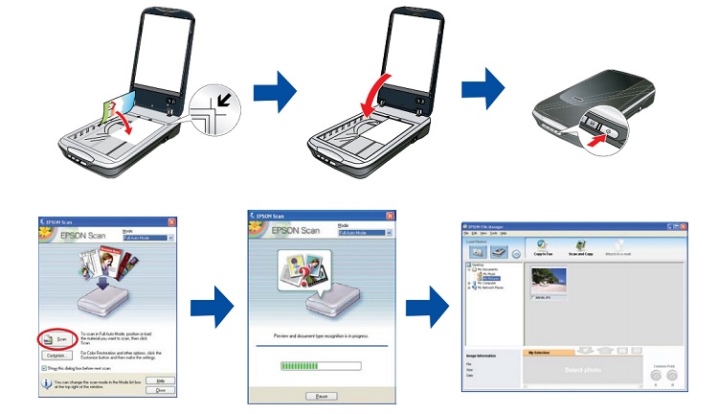
If the scanned document needs to be converted into text format, you will need a special program. It recognizes letters and numbers, translating them into plain text. You can find additional software on the vastness of the worldwide network.
The following video describes how a flatbed scanner works.













The comment was sent successfully.